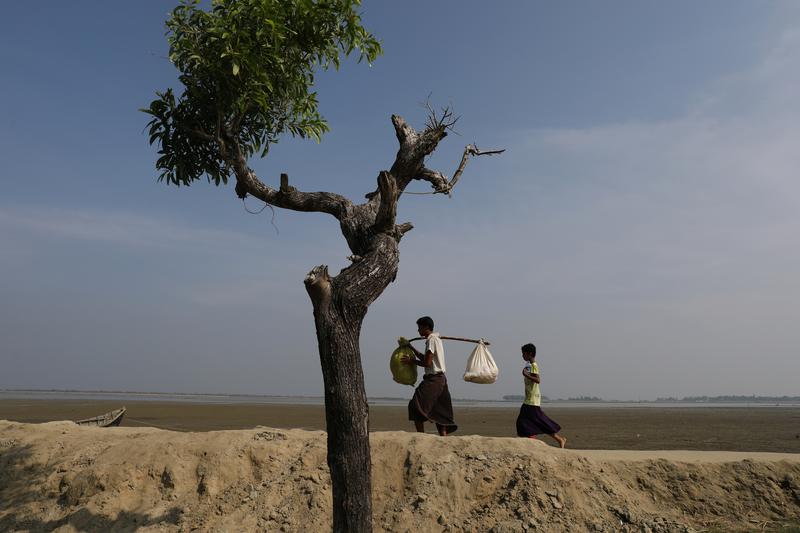Burma and Bangladesh have signed a Memorandum of Understanding (MoU) concerning the repatriation of more than 600,000 refugees from Rakhine State’s Rohingya Muslim community who have fled the state’s north en masse over recent months.
The “Arrangement on Return of Displaced Persons from Rakhine State” was signed by Union Minister Kyaw Tint Swe and Bangladeshi Foreign Minister Abul Hassan Mahmood Ali in Naypyidaw on Thursday.
The full text of the agreement did not appear to have been made publically available by Friday afternoon, but state media indicated that it uses a previous accord on repatriation drafted in 1992 as its basis.
“The lack of transparency in releasing the text so far is emblematic of the larger lack of any sort of meaningful consultation with the refugees that these two governments want to load on to trucks and send back in two months’ time,” Phil Roberts, deputy Asia director of Human Rights Watch, told DVB.
The 1992 agreement provided for “general guiding principles and policy arrangements to systematically verify and receive the displaced persons from Rakhine State,” according to the state-run Global New Light of Myanmar.
Early this month, a senior administration official told DVB the 25-year-old agreement would require updating to reflect the changed circumstances that inevitably have accompanied the passage of more than two decades’ time.
The MoU, coming three months after 25 August attacks on several police posts and a military base by Rohingya militants, is in some ways only the end of the beginning. The mass exodus has severely strained humanitarian aid operations in Bangladesh and bilateral relations have showed signs of fraying: Late last month, a senior Burmese official accused the Bangladeshi government of dragging its feet in the repatriation process as it awaited hundreds of millions of dollars in anticipated assistance from the international community to cope with the refugee influx.
The scale of the repatriation ahead, and the difficulty that many Rohingya refugees will face in meeting criteria for return that will require them to prove their claim to residency in Rakhine State, mean the process will likely be lengthy.
Additionally, the willingness of the refugee population — many still traumatised by the alleged human rights abuses perpetrated by security forces in Rakhine — to return to Burma is a major question mark. Uncertainties range from whether their safety can be assured to where they will go; based on satellite imagery, hundreds of villages in northern Rakhine State have been burned to the ground over the past three months.
[related]
Both countries have stated a commitment to any refugees’ repatriations being based on the principle of voluntary return.
But some expressed concern about the repatriation plan as it plays out in the weeks, months and quite possibly years to come.
“The idea that Burma will now welcome them back to their smoldering villages with open arms is laughable,” said Bill Frelick, refugee rights director at Human Rights Watch.
“Instead of signing on to a public relations stunt, the international community should make it clear that there can be no returns without international monitors to ensure security, an end to the idea of putting returnees in camps, the return of land and the rebuilding of destroyed homes and villages, and many other conditions.”



